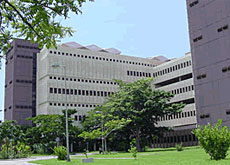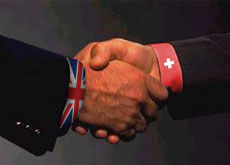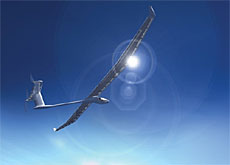Swiss drawn to Cuba by biotech success

The success of biotechnology research in Cuba is the main pull-factor for a Swiss delegation arriving in the country for a one-week official visit on Monday.
Leading the delegation is the State Secretary for Education and Research, Charles Kleiber, the highest-ranking Swiss government representative to travel to Cuba on official business.
“There are very few relations in the field of science and we think that it’s the moment now to strengthen our cooperation,” Kleiber, who was previously in Cuba in 2002, told swissinfo.
He said the aim of the trip was to see where Cuban science was at the moment, mainly in the field of biotechnology.
“What are they doing? How do they work, with whom do they cooperate and is there any possibility of learning from them?”
The small delegation includes two scientists from the Swiss Federal Institute of Technology and the rector of Basel University.
They will attend a university congress in Havana, where Kleiber will be giving a keynote speech.
Against the odds
Observers say the collapse of the former Soviet Union and the United States trade embargo forced Cuba to develop homegrown solutions to local health problems.
Despite being relatively poor, Cuba’s biotech sector is among the most successful in the developing world. Cuba exports biotechnology products to more than 50 countries, mainly in Latin America, eastern Europe and Asia.
Vaccines have been a particular focus of Cuban biotechnology. Local research and development programmes led to the first and only vaccine for a strain of meningitis.
Well-funded research centres, such as the Centre for Genetic Engineering and Biotechnology in Havana, have been at the forefront of several impressive scientific advances.
Ongoing work includes research on a Dengue vaccine, preventative and therapeutic Aids vaccines, a cholera vaccine and a cancer therapeutic vaccine.
Pharmaceutical giant GlaxoSmithKline will soon begin clinical trials on a meningitis B vaccine developed in Cuba. Experts say there may be similar opportunities for Swiss companies in future.
Closer cooperation
“If there is any possibility to make a concrete step to cooperate more in the field of science, we’ll do that,” Kleiber said.
He will meet the minister for higher education and research as well as the foreign minister during his visit.
“Cuba is a very special case which played a historic role in the Cold War,” Kleiber explained.
“Now the Cubans themselves are already speaking about the post-Fidel [Castro]period, so we have to see what’s going on there too.”
A recent study found that Cuba’s success in biotechnology was the result of the country’s long-standing investment in education and science.
swissinfo
In 1962 the United States imposed a political and economic embargo on Cuba, which is still in effect today.
Cuba has applied for or holds at least 400 patents in the biotechnology field.
The Cuban leader Fidel Castro visited Switzerland in 1998.
Switzerland has been granting humanitarian and development aid to Havana since 1997. The total Swiss aid budget for Cuba last year was SFr4.2 million ($3.2 million).
However, the country, which has been led by Castro’s government for more than 40 years, has been criticised over alleged human rights abuses.

In compliance with the JTI standards
More: SWI swissinfo.ch certified by the Journalism Trust Initiative


You can find an overview of ongoing debates with our journalists here. Please join us!
If you want to start a conversation about a topic raised in this article or want to report factual errors, email us at english@swissinfo.ch.